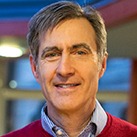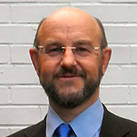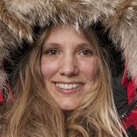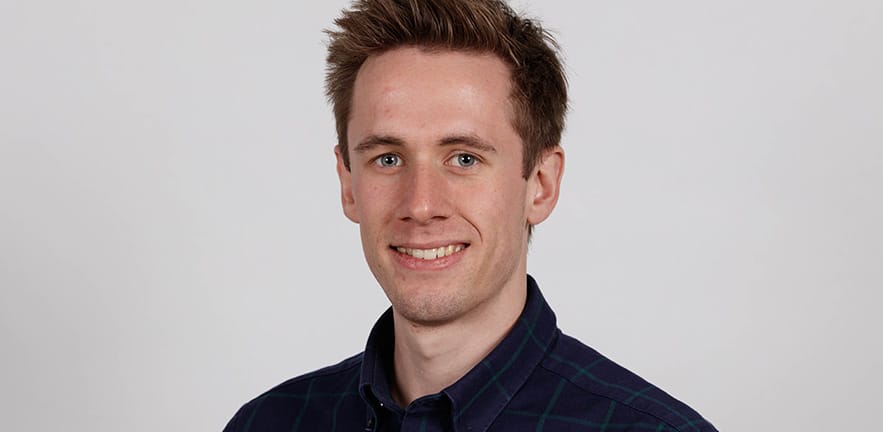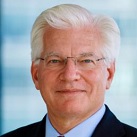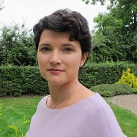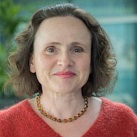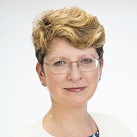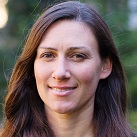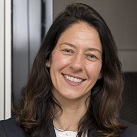Business Risk from Climate Change

26 Feb 2020
13:30 -18:30
Times are shown in local time.
Open to: All

Cambridge Judge Business School
Trumpington St
Cambridge
CB2 1AG
United Kingdom
Overview
Climate change is a growing concern for businesses. Many corporations are trying to understand how it is likely to affect them, the actions that they may need to undertake for sustainability and for commercial and competitive reasons, and the regulatory requirements or other liabilities they may face.
Companies are struggling to reconcile the long range forecasts of the consequences of a warmer planet in several decades’ time with weather changes that are already impacting their businesses in various ways, and how their business will be affected by the transitions that society is making today towards a low-carbon economy. Many are considering their corporate social responsibility and accountability to shareholders, customers, and other stakeholders. An increasing number of companies are participating in the Task Force for Climate-related Financial Disclosures (TCFD) to consider and disclose their climate-related risks.
The University of Cambridge has been at the forefront of climate science and has led the way in understanding the processes of climate change. It has a new cross-university initiative in Cambridge Zero which provides an opportunity for the University’s research to provide information and tools for use by businesses, as well as policymakers and others.
At this seminar we bring together business executives with climate change scientists to help improve the dialogue between them, to help businesses articulate what they need from the science to aid their business decisions, and for the scientists to help businesses understand the risks that they face and to provide information and data in formats that businesses can readily consume. At this event, we will provide:
- Briefings and latest views on how climate change is occurring, and our state-of-knowledge about the processes that are changing the risk environment for businesses
- Updates on the latest businesses initiatives to manage their risks from climate change, participation in TCFD, and best practice on assessing risk from climate change
- Tools and data for businesses to assess their risks
- Opportunities for businesses and climate scientists to exchange ideas
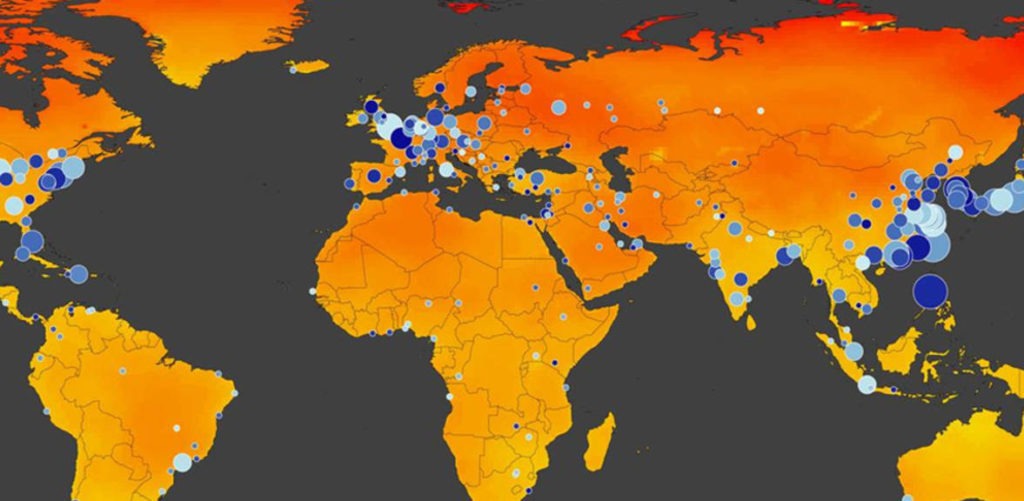
Meeting partners
Programme
Day 1
Wednesday 26 February 2020
13:30 – 14:00
Registration
14:00 – 14:05
Welcome
Professor Daniel Ralph, Academic Director, Cambridge Centre for Risk Studies, and Professor of Operations Research, Cambridge Judge Business School
14:05 – 14:25
Cambridge Zero
Dr Emily Shuckburgh, Director, Cambridge Zero
14:25 – 14:45
Applications of Climate Science for Business Risk
Dr Andrew Coburn, Chief Scientist, Cambridge Centre for Risk Studies
14:45-15:05
Cambridge Climate Change Business Risk Index
Oliver Carpenter, Environmental Risk Research Lead, Cambridge Centre for Risk Studies
Dr Erik Mackie, Public Engagement Coordinator, Cambridge Zero, and Honorary Reseracher, British Antarctic Survey
15:05 – 15:25
Using AI to Study Environmental Risk
Dr Scott Hosking, Environmental Data Scientist, British Antarctic Survey
Risa Ueno, PhD Student, British Antarctic Survey
15:25-16:00
Tea break
16:00 – 16:20
The Bank CRO perspective on Climate Change
Colin Church, Chief Risk Officer, EMEA, Citi
16:20-17:20
Panel discussion: Business decision making on climate risk: data, time horizons and scenarios
- Moderator: Dr Nina Seega, Research Director, Sustainable Finance, Cambridge Institute for Sustainability Leadership
- Dr Bronwyn Claire, Senior Programme Manager, ClimateWise, Cambridge Institute for Sustainability Leadership
- Professor Penny Endersby, Chief Executive, Met Office
- Zoë Knight, Group Head, Centre of Sustainable Finance, HSBC
- Jo Paisley, Co-President, GARP Risk Institute, Global Association of Risk Professionals (GARP)
17:20 – 17:30
Concluding remarks
Professor Daniel Ralph, Academic Director, Cambridge Centre for Risk Studies, and Professor of Operations Research, Cambridge Judge Business School
17:30-18:30
Drinks Reception
Cambridge Judge Business School
Speakers and resources
Professor Daniel (Danny) Ralph
Academic Director, Cambridge Centre for Risk Studies
Professor of Operations Research, University of Cambridge Judge Business School
Professor Danny Ralph is a Founder and Director of the Centre for Risk Studies, Professor of Operations Research at Cambridge Judge Business School, and a Fellow of Churchill College.
Danny received his PhD in 1990 from the University of Wisconsin Madison. He was a faculty member of the Mathematics & Statistics Department at the University of Melbourne before coming to Cambridge University for a joint appointment in the Engineering Department and Cambridge Judge Business School.
Danny’s research interests include: risk in business decision making; risk aversion in electricity markets; methods and models for optimisation problems and equilibrium systems. Specific projects undertaken in collaboration with the banking and insurance industry (Catlin, HSBC, ICBC, Lloyd’s, Munich Re, Risk Management Solutions, Swiss Re) cover emerging risk scenarios, financial stress testing and a global ranking of cities by risk exposure. Engagements with other sectors include electricity consultancies (Artelys, LCP), oil and gas (Shell Exploration, Statoil) and retail (BT Retail, Gap) on decision making under high uncertainty. Public service contributions to the UK Cabinet Office, UK Industry and Parliamentary Trust, UK Office of the Government Chief Scientific Advisor, and United Nations World Humanitarian Summit.
Professor Ralph is a member of the Australian Mathematical Society, INFORMS, the Mathematical Optimization Society and SIAM. He was Editor-in-Chief of Mathematical Programming (Series B) from 2007-2013 and has served on the editorial boards of Mathematics of Operations Research and the SIAM Journal on Optimization, as well as the SIAM-MPS book series on optimisation.
Andrew Coburn
Chief Scientific Advisor, Centre for Risk Studies
Dr Andrew Coburn manages the External Advisory Board of the Centre for Risk Studies, coordinating the inputs of consumers of research into the Centre’s risk agenda. Andrew is the principal coordinator of the research programme on ‘System Shock’ at the Centre.
Andrew is one of the leading contributors to the creation of the class of catastrophe models that over the past 20 years has come to be an accepted part both of business management in financial services and of public policy making for societal risk. He has extensive experience in developing models and using them for business decision support. Andrew has also provided research inputs into government policy, such as House of Congress legislation on terrorism risk management policy and urban planning for disaster mitigation in Mexico, Metro Manila, and Southern Italy.
Dr Andrew Coburn is a member of the senior management of Risk Management Solutions, the leading provider of catastrophe risk models to the insurance industry.
Dr Erik Mackie
Public Engagement Coordinator, Cambridge Zero, and Honorary Reseracher, British Antarctic Survey
Erik Mackie is Public Engagement Coordinator at Cambridge Zero and an Honorary Researcher at the British Antarctic Survey. His research interests include climate change, physical oceanography, satellite remote sensing, and sea level rise. He studied applied mathematics at the University of Edinburgh and completed his PhD joint between the University of Bristol and the British Antarctic Survey, using high-resolution satellite data to investigate the circulation of the Southern Ocean and its response to climate change. He was also a Policy Fellow at the Parliamentary Office of Science and Technology in Westminster, where he authored a briefing for parliamentarians on sea level rise and the risks of extreme sea level events for the UK.
Risa Ueno
PhD Student, British Antarctic Survey
Risa Ueno is a PhD student at the British Antarctic Survey and the University of Cambridge. Her work focuses on developing machine learning techniques to obtain better future projections of climate extremes in megacities and assessing their potential impact on urban infrastructure resilience. She has a masters in computational statistics and machine learning from UCL and studied undergraduate physics at Imperial College London. She worked at IBM as a technology consultant for two years before discovering the world of machine learning research.
Dr Emily Shuckburgh
Director of Research of the Carbon Neutral Futures Initiative, University of Cambridge
Dr Emily Shuckburgh is Director of the University of Cambridge Carbon Neutral Futures Initiative and Reader in Environmental Data Science at the Department of Computer Science and Technology. She is a mathematician and climate scientist and a Fellow of Darwin College, a Fellow of the Cambridge Institute for Sustainability Leadership, an Associate Fellow of the Centre for Science and Policy and a Fellow of the British Antarctic Survey. She leads the UKRI Centre for Doctoral Training on the Application of AI to the study of Environmental Risks (AI4ER). Until April 2019 she led a UK national research programme on the Southern Ocean and its role in climate (ORCHESTRA), and was deputy head of the Polar Oceans Team and head of the Data Science Group at British Antarctic Survey. In the past she has worked at École Normale Supérieure in Paris and at MIT. She is a fellow of the Royal Meteorological Society and co-chair of their Climate Science Communications Group. She has also acted as an advisor to the UK Government on behalf of the Natural Environment Research Council. In 2016 she was awarded an OBE for services to science and the public communication of science. She is co-author with HRH The Prince of Wales and Tony Juniper of the Ladybird Book on Climate Change.
Scott Hosking
Environmental Data Scientist, British Antarctic Survey
Scott Hosking is an Environmental Data Scientist at the British Antarctic Survey (BAS). His research involves using AI and machine learning techniques on vast and various datasets, including the output from global climate models and weather stations. The primary aims of Scott’s work are to identify and understand the key mechanisms that drive year-to-year climate variability over vulnerable regions, the changes in frequency and strength of extreme weather events, and to reduce uncertainties in future climate predictions.
Colin Church
Chief Risk Officer, EMEA, Citi
Colin is responsible for managing Risk across Citi’s Institutional Client Group, including Citi Private Bank, Consumer and Commercial Banking businesses in EMEA. He is a member of the EMEA Operating Committee, Global Risk Management Executive Committee and Global Information Security Committee. Colin managed Citi’s cross-divisional contingency planning and crisis management events, notably orchestrating Citi’s responses to the Arab Spring, GIIPS, Russia / Ukraine, Argentina (2016) and most recently U.K. Referendum and Brexit contingency plans. He established Citi’s “second line” Cyber Risk Management Function and is a member of the Bank of England’s Cross Market Operational Resilience Group (CMORG).
Panel
Dr Nina Seega
Research Director, Sustainable Finance, Cambridge Institute for Sustainability Leadership
Nina is an expert in the use of risk management tools to address environmental sources of risk in the financial sector and has just been appointed Academic Visitor at the Bank of England. In 2016 and 2017 she has co-led the CISL team serving as Knowledge Partner for the risk analysis track of the G20 Green Finance Study Group. She also sits on the Strategic Advisory Board for Sustainable Finance at the British Standards Institute and Advisory Board of the Hughes Hall Climate Change Engagement Centre. Previously, Nina was the Head of the London Traded Products Desk for Dresdner Kleinwort, where she was responsible for credit risk management of traded products
CISL’s Centre for Sustainable Finance works with more than 50 global financial institutions across banking, insurance and investment, providing insight to challenge current assumptions and lead change on their response to climate change. The Centre’s leadership groups include ClimateWise, the Banking Environment Initiative, the Investment Leaders Group, and its research includes understanding the role of the financial system in financing a sustainable, zero carbon economy.
Professor Penny Endersby
Chief Executive, Met Office
Penny grew up in North London and gained her first experience of scientific research as a WISE Scholar at GEC in her sixth form. She read Natural Sciences at Cambridge, and was sponsored by British Gas, where she researched the then new area of solid oxide fuel cells. She joined the Ministry of Defence as a Scientific Officer in 1993. There she designed novel armours for fighting vehicles, conducting many explosives trials and becoming the national expert on electrically powered armours. She led several research groups in the Defence Science and Technology Laboratory (Dstl), covering Materials Science, Acoustics, Dispersion Hazard Prediction and more before leading Dstl’s Physics Department, and becoming a fellow and trustee of the Institute of Physics. In 2012 she moved to be the head of Dstl’s Cyber and Information Division and took up her visiting professorship in Electronics and Computer Science at Southampton University. She was the executive sponsor of Dstl’s gender equality network and a county silver commander for major incident response. Just prior to taking over at the Met Office Penny became Dstl’s acting Chief Technical Officer. She was appointed the first female CEO at the Met Office in 2018, and is our national representative at the World Meteorological Congress.
Penny has a strong interest in innovation and exploiting intellectual property, as part of which she has served as a director of Ploughshare Innovations and a mentor for Future Worlds. In her personal life she is an expert choral singer and lover of the natural world, which also led to a stint as treasurer and trustee of Wiltshire Wildlife Trust. She is married to a teacher and they have two grown-up children, both also singers.
Jo Paisley
Co-President, GARP Risk Institute, Global Association of Risk Professionals (GARP)
Jo Paisley is Co-President of the GARP Risk Institute, the thought leadership arm of the Global Association of Risk Professionals (GARP). Set up in early 2018, the Institute works across all risk disciplines, focussing to date on climate risk management and scenario analysis, stress testing and operational resilience. Prior to joining GARP, she worked at the Bank of England in a variety of roles, across macroeconomics, statistics, supervision and risk. Her last role was as a Director of the Supervisory Risk Specialists Division within the Prudential Regulation Authority. She left the Bank in 2015 and joined HSBC as their Global Head of Stress Testing. She has also worked as an independent stress testing consultant, advising firms on how to get the most value out of their stress testing.
Dr Bronwyn Claire
Senior Programme Manager, ClimateWise, Cambridge Institute for Sustainability Leadership
Dr Bronwyn Claire leads ClimateWise, a group of 25 insurance industry members who are responding to the risks and opportunities of climate change. ClimateWise members are annually independently reviewed on the integration of the seven ClimateWise Principles across their business activities, including leading in the identification, understanding and management of climate risk, informing public policy, incorporating climate-related issues into investments and strategies, and supporting climate awareness amongst clients and customers. The ClimateWise Principles Independent Review 2019 is a milestone for ClimateWise members, representing the first year of reporting in full alignment with the TCFD and providing useful reflections on the challenges and opportunities for the industry in implementing TCFD recommendations. ClimateWise members also actively participate in various research projects that explore how the industry can better support society to transition to a zero carbon, climate-resilient future. Last year ClimateWise launched the Transition and Physical risk frameworks for assessing the impact of risks from climate change on infrastructure assets.
Zoë Knight
Managing Director, Group Head, HSBC Centre of Sustainable Finance
Zoë Knight is a Managing Director and Group Head of the HSBC Centre of Sustainable Finance. She joined HSBC in 2010 and most recently led the Climate Change Centre of Excellence within Global Research, having been an investment analyst at global financial institutions since 1997.
For ten years she focused on equity strategy, before focusing on socially responsible investing. Since joining HSBC Zoë has co-authored reports on low-carbon opportunities in bond and equity markets, as well as long-term carbon and water risks. Previously, she contributed a chapter to Investment Opportunities for a Low-Carbon World (2009). Throughout her career she has been ranked in Extel and Institutional Investor.
She also sits on the Board of the World Energy Council UK and holds a BSc (Hons) in Economics from the University of Bath.








